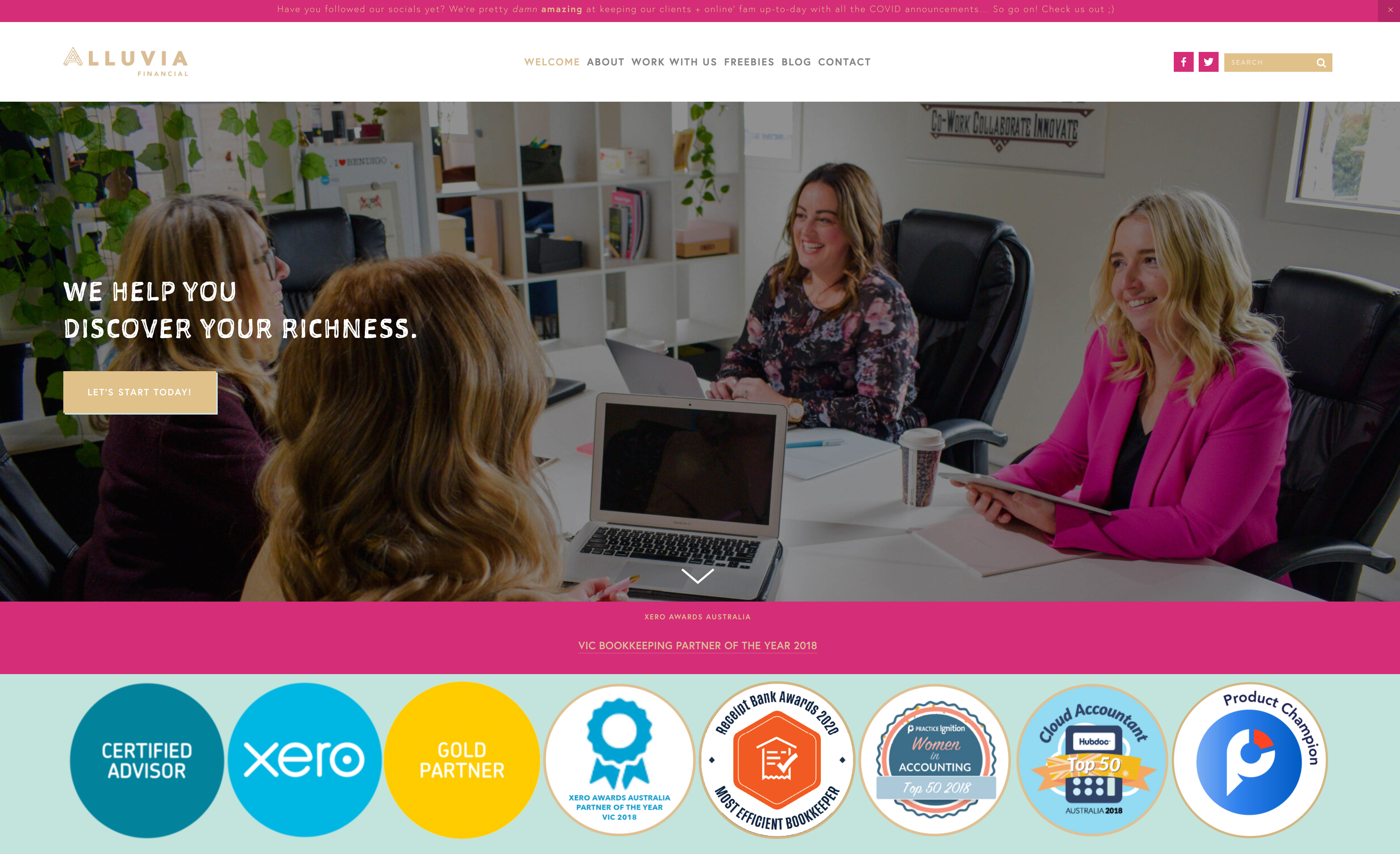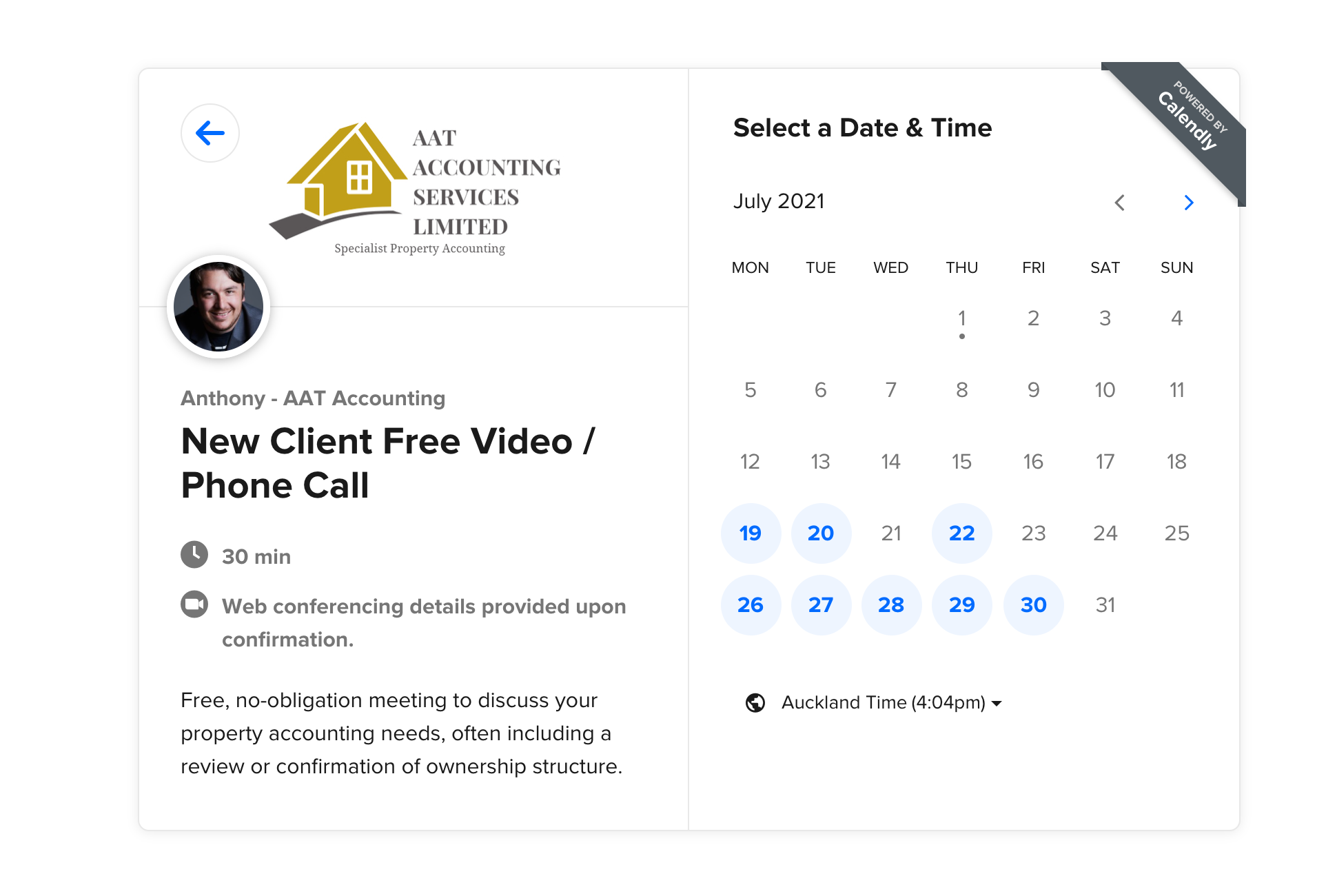The art of developing an effective website for Accountants & Bookkeepers
An accountant’s and bookkeeper’s guide to building a stand-out online presence
As the digital storefront to your accounting or bookkeeping firm, your website is often the first-place potential new clients connect with your business. With 80% of people visiting a business website after reading an online review, its highly likely that even with a word-of-mouth referral that their next port of call will be your website. So, it needs to make a good and lasting impression.
But your website should do more than just look pretty. Nail your website design and it’ll help attract and generate client leads – and ultimately win new business. Websites designed with user experience in mind are proven to increase conversions and sales by up to 200%.
When planning and designing your accounting or bookkeeping website, make sure you consider these core elements:
Choosing the right web platform
Crafting a website is like building a house. Before you think about ‘painting the walls’, you’ve got to get the foundations right. That means carefully selecting the software to build your website.
Not all platforms are made equal or have the same level of functionality. The best platform for your accounting or bookkeeping business will depend on how your website will be used by your firm and your clients. It should keep your site running smoothly and efficiently, allow you to edit and update your content and have robust security too.
Start by doing your due diligence. Research user reviews, focusing on performance and usability. Working with a web developer will ensure you find an option that meets your budget and has appropriate customisation and integration capabilities.
Here are a few options to get you started:
A compelling homepage
Studies have shown it takes people 1/20 of a second to make up their minds about the quality of a website – and that doesn’t change the longer they spend browsing. At that pace, people will judge your site by its homepage.
Here’s what a good homepage should have:
- Clear branding. Your website should reflect your business identity – logo, colours, tone and style.
- Impactful messaging. Your homepage should say who you are, what you do and why someone should choose your accounting or bookkeeping firm. Simplicity is king – be clear and concise and avoid any jargon.
- Provide proof. Showcase your expertise, industry certifications and qualifications and customer testimonials to further persuade visitors they are making the right choice.
- Call to action. Make it clear what you want people to do next with a strong CTA – these are what will help convert visitors into clients.

Simple navigation starts with the menu
If you’ve ever landed on a website, only to quickly become frustrated that you can’t find what you’re looking for, then you already know the importance of intuitive navigation.
Make sure that getting around your website is straightforward. Don’t overcomplicate the structure of your pages – people have come to expect standard page names like ‘About us’, ‘Services’, ‘Blog’ and ‘Contact us’. Also, ensure the menu bar is visible at the top of every page.
Mobile responsive
Internet browsing by mobile has surpassed desktop in recent years. Search engines like Google also rank mobile versions of sites first, so optimising for mobile is essential.
A mobile-friendly website is designed to adapt its size to a user’s device, ensuring visitors get the best viewer experience. Non-mobile-friendly sites tend to look unfinished or like pieces are missing – which will have people hitting the back button.
Most good website software these days is mobile responsive, so if you’re not sure, ask your web developer.
Key elements that make good web pages
Now that you’ve got the foundations in place, think of your web pages as the different rooms in a house. Each page will have its purpose, content and layout, but certain design elements must stay the same for everything to work cohesively.
Key messages are ‘above the fold’
Eye-tracking studies by usability guru Jakob Neilson found that people tend to focus on ‘above the fold’ or the portions of a webpage that are visible without further scrolling or clicking.
On all pages, ensure visitors can read the main messages straight away – especially on mobile devices.
Engaging, useful content
38% of people will leave a website if the content is unappealing, so encourage visitors to stay on your site by providing interesting and useful information. Rather than headlines like ‘introduction’ or ‘welcome to our website’, tell visitors exactly what they’ll find on your site – and why it will help them. Use blogs and videos to demonstrate your accounting or bookkeeping expertise and knowledge.
All of this will help build trust and establish you as an expert in your field – and ultimately convert visitors into clients.
Visually appealing images
Pictures paint a thousand words – literally! Images are processed by the human brain 60,000 times faster than text. Use professionally designed brand imagery and photography to add authenticity and credibility to your website. If you need to use stock imagery, avoid anything that doesn’t align with your brand.
Always include calls to action
Think of CTAs as wayfinding posts – use them to tell your visitors what they should do next. Rather than the standard ‘sign up’ button, focus on the action you’d like your audience to take.
Here are some ideas:
- Encourage people to sign up for a monthly newsletter or webinar.
- Let visitors know how they can get in touch with you to book a meeting – we recommend embedding a calendar app like Calendly on your ‘Contact Us’ page.
- Provide a free download, e.g. how to minimise your tax bill.
- Or simply, ‘ask for a quote’ or ‘find out more’.

Website – the ‘shopfront’ to your firm
Most importantly, your website should focus on the needs of your clients – new and prospective. It’s the first – and in some cases, the only – place where a potential customer may engage with your brand, so putting your best accounting or bookkeeping foot forward should be a top priority.
- Be clear on what you want people to do – direct them to your chosen endpoint, e.g. your contact page.
- Use clear, visually appealing website design and copy.
- Put your main messaging ‘above the fold’. Can you explain this concept more – e.g. this could include the firm tagline / purpose etc?
- Ensure your site is mobile responsive and uses the right platform.
- Create a great homepage with a clear menu.
Download The Digital Marketing Guide For Accountants
Digital marketing requires a whole new set of skills – that’s why we put together our e-book, Digital Marketing: For Accountants and Bookkeepers. It’s designed to help you make the most of marketing opportunities in a way that makes sense for your business and your brand.